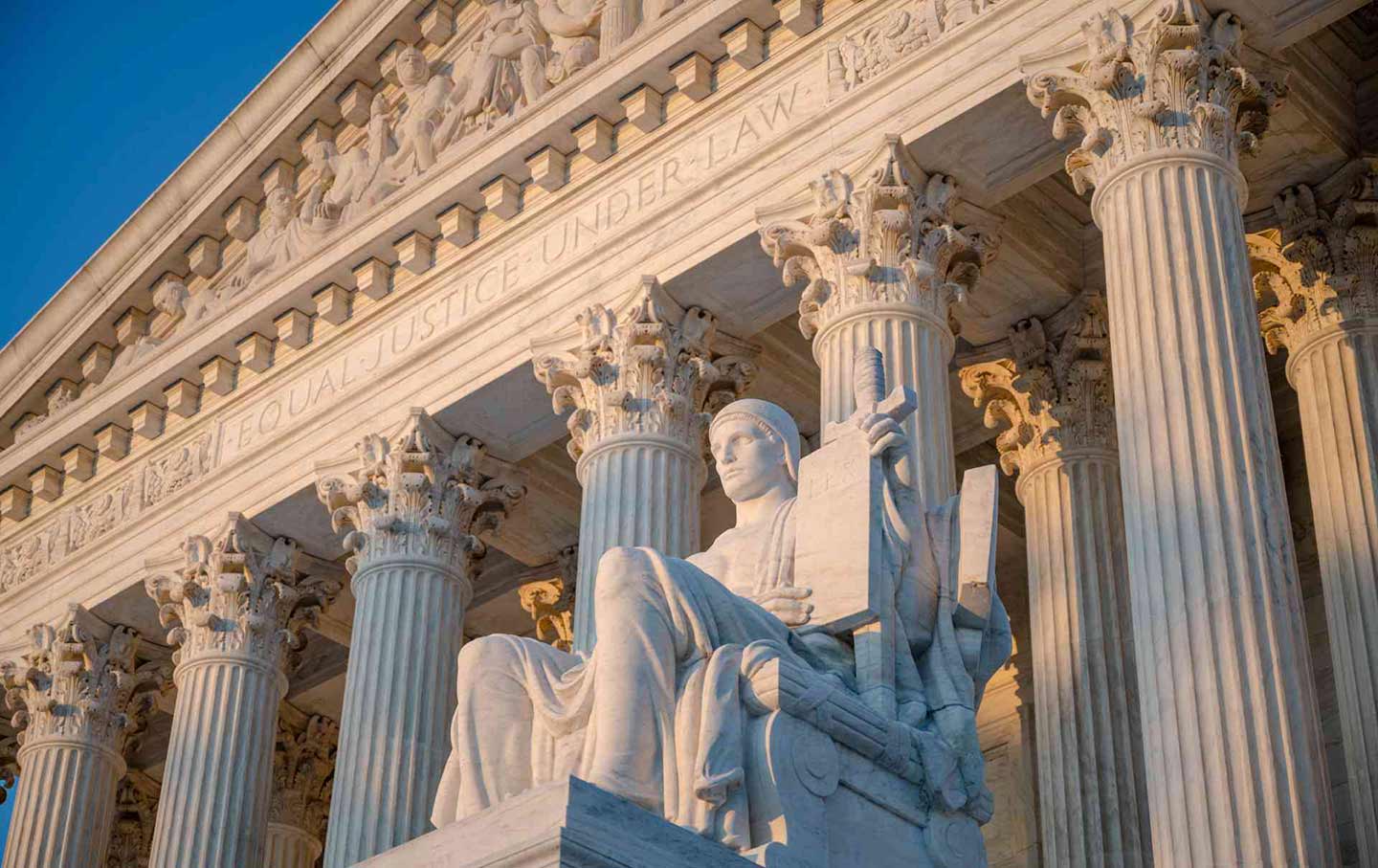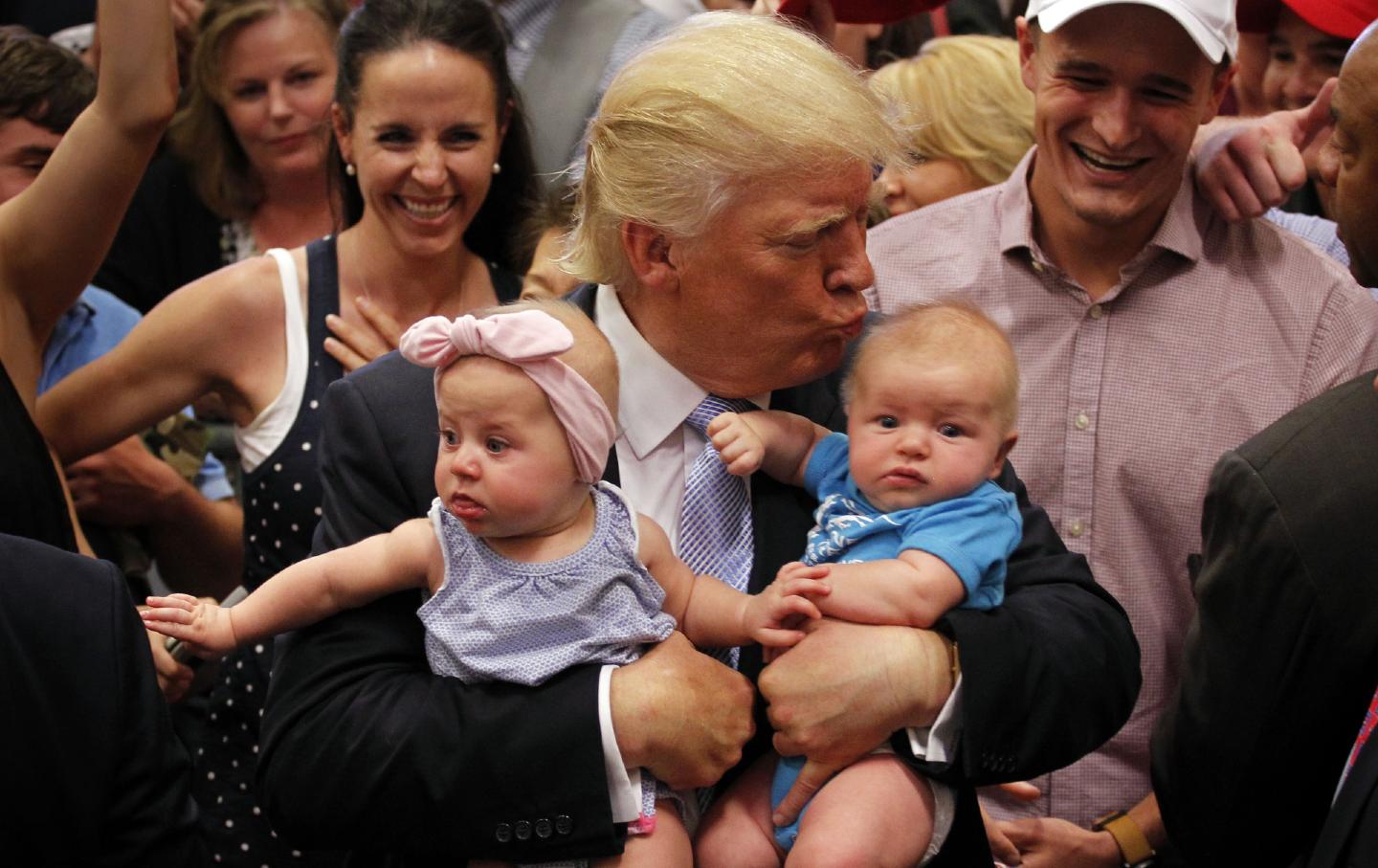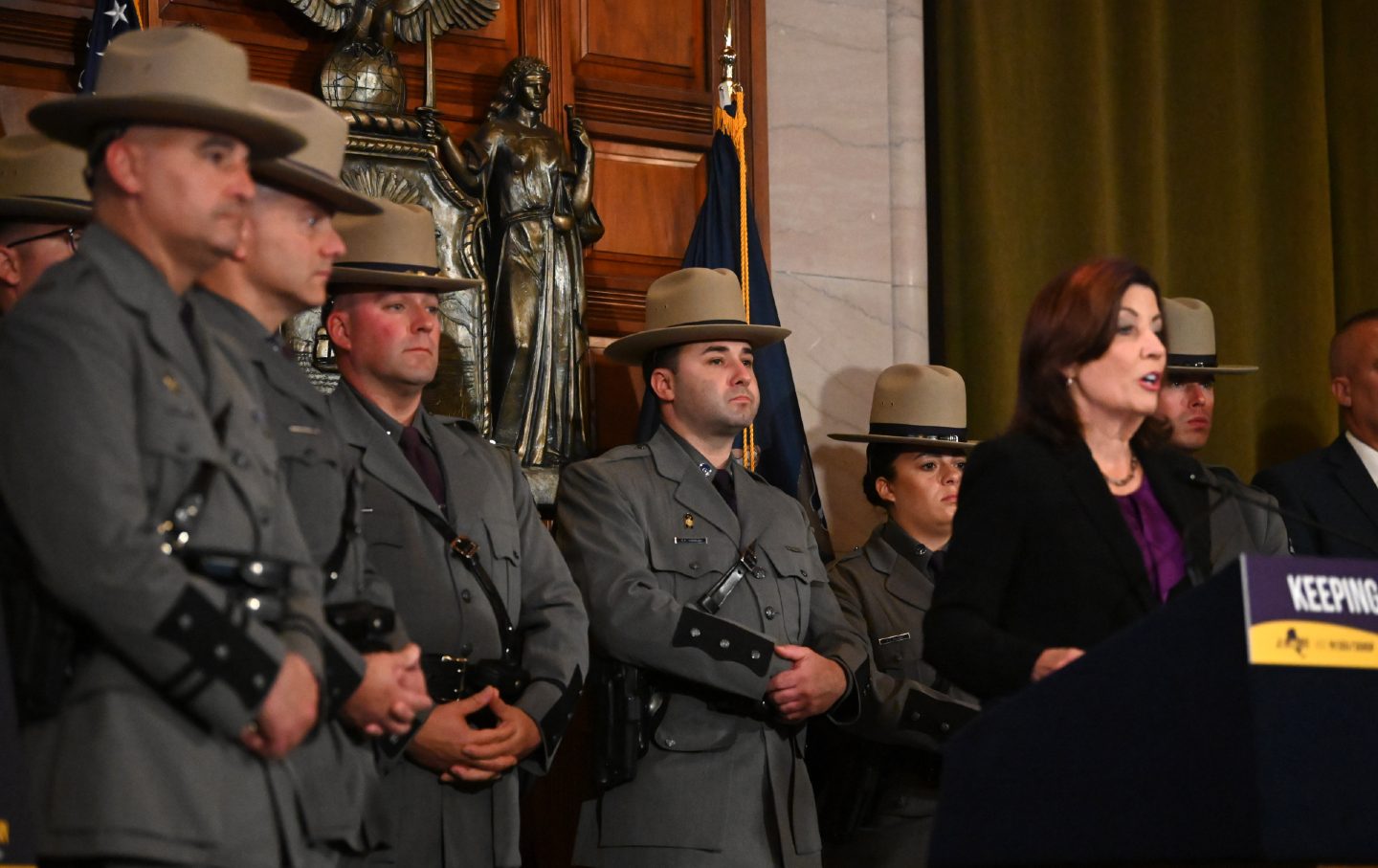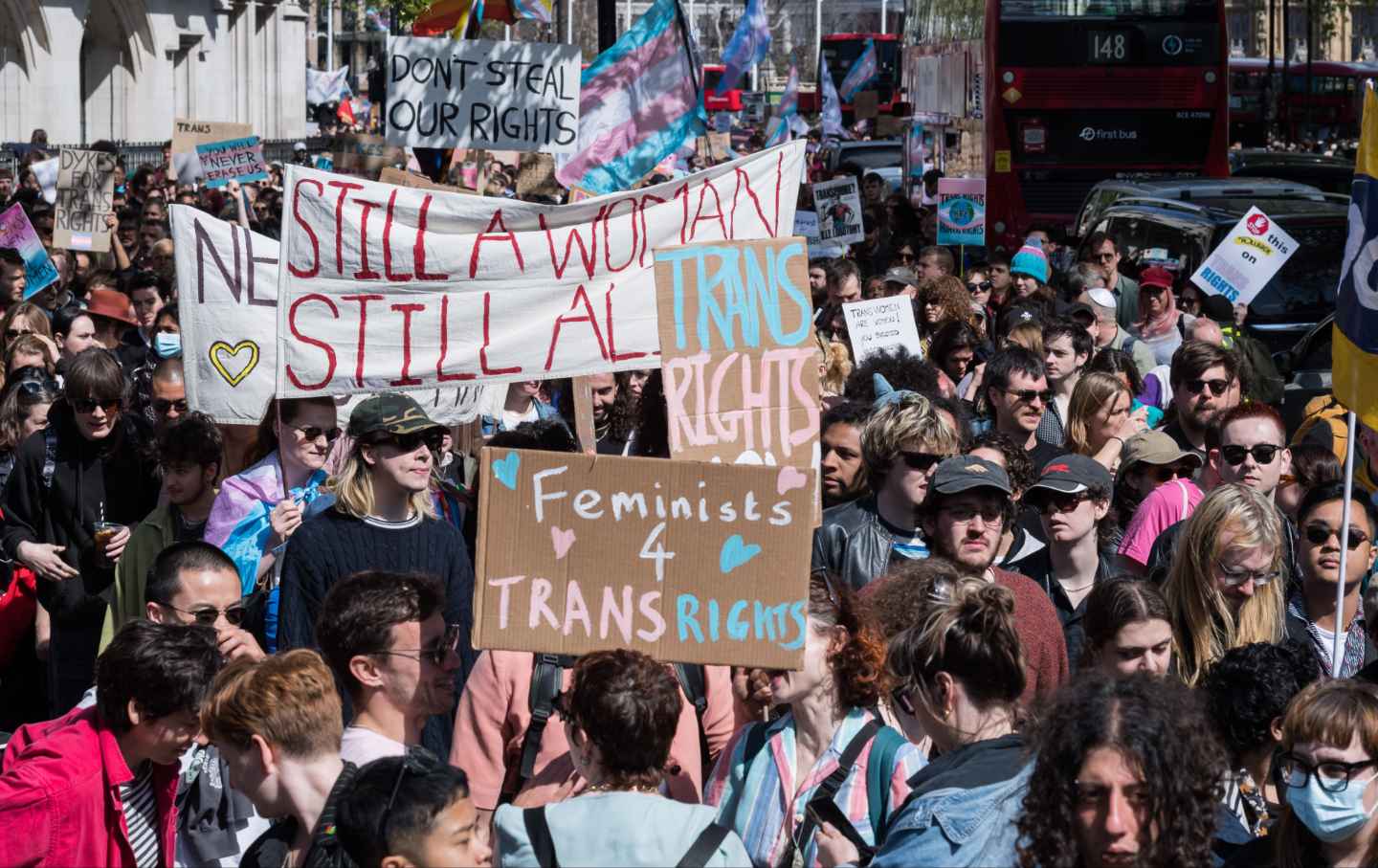It’s Impossible to Overstate the Damage Done by the Supreme Court in This Term
The effects of the high court’s rulings will be enduring and almost impossible to overturn without a serious reckoning by Democratic lawmakers.

The just completed Supreme Court term will initiate a seismic shift in the distribution of power in the American republic. The effects of the court’s rulings in this term will have a bigger impact on the rule of law and our political future than anything the court has done since 1857’s Dred Scott decision.
I simply cannot overstate the significance of what has just happened. In one single month, the Supreme Court: legalized bribery of public officials, declared the president of the United States absolutely immune from criminal prosecution for “official” acts, and made the power to issue regulations subject to the court’s unelected approval.
When we widen the aperture to look at the whole term, we find that the court also ruled that people who fail in their violent attempts to reverse the results of an election can run for office in the very next election; would-be mass shooters can buy attachments to change their weapons into machine guns; and white state legislatures can systematically remove all Black people from their districts and call it “politics.” And as if to add a dose of unvarnished cruelty to its machinations, the court also ruled that insurrectionists who attack the capitol and obstruct the work of Congress cannot be charged with a crime, but homeless people sleeping on the streets can be sent to jail.
These rulings mean that the Supreme Court, and only the Supreme Court, gets the final word on what regulations Congress really wanted to pass, and which crimes presidents are allowed to commit. And the justices themselves can be paid, handsomely, for their opinions should interested parties and wealthy donors would like to give them a “gratuity” for ruling in ways that please those moneyed interests.
Folks, we can’t “come back” from this. There is no presidential order or legislative action that can undo all of the evils committed by the Supreme Court. This is different from what’s happened before. In 2012, when the court gutted the most important piece of legislation in American history, the Voting Rights Act, there were immediate calls for Congress to pass legislation restoring what the court took away. Obviously, Congress hasn’t done that because Republicans are against Black people voting, and Democrats, even when they have power, are against doing anything that would upset Senate traditions. But, at a minimum, the possibility existed that legislation could fix what the Supreme Court had broken (at least until the Supreme Court overruled those legislative fixes).
Similarly, in 2022, when the court took away a constitutional right for the first time in American history and overturned Roe v. Wade, there were immediate calls for Congress to pass legislation restoring what the court took away. Obviously, that hasn’t happened, because Republicans are against women having equal rights and Democrats are against doing anything that would upset Senate traditions—but, again, the possibility of a remedy existed.
This time, there’s no legislative fix for the problems the court has created. Consider the proposition that presidents are no longer subject to criminal laws. The court has ruled that, as a matter of the constitutional separation of powers, nobody has the right to prosecute presidents for crimes as long as the president claims that committing crimes is part of their job. Congress cannot reinstate criminal penalties the court says are unconstitutional in the first place.
Meanwhile, when it comes to government regulations you may have heard people—specifically, Republicans speaking in bad faith—claim that Congress just has to write better laws instead of leaving it to the executive agencies to fill in the gaps. But that is simply not a reasonable or feasible expectation. Congress doesn’t know how much lead is allowed to be in water before it damages the brains of the people who drink it. It doesn’t know how fast an industrial thresher should be allowed to operate before it becomes a death trap operated by a Bond villain. It doesn’t know if taking a submarine piloted with a PlayStation controller to visit the Titanic is a good idea or not. Experts know these things. Congress cannot write laws detailed enough for them to avoid needing to be filled out by experts in the relevant field. By placing itself over the executive agencies, the Supreme Court makes itself not judges but regulators who are allowed to assert their guesses over the judgments of scientists and professionals.
The Supreme Court is the only branch of government that claims the power to rule unchecked by the other branches of government. If Congress passes a law, the court claims authority to overrule it. If the president issues an order or regulation, the court claims the power to overrule them. If a state legislature or governor passes a rule or ordinance, the court claims the power to overrule them. And if voters attempt to elect leaders, the court claims the authority to overrule them by literally picking whose votes should be counted or recounted—to say nothing of who gets to vote in the first place.
This is not how a democracy or a republic is supposed to work. Supreme power is not supposed to reside in the hands of unelected officials who have been appointed for life. In fact, this is not how our democracy is supposed to work: The Constitution does not give the Supreme Court these powers—the court has invented them for itself.
There are only two ways to deal with this Supreme Court: ignore its rulings or flood it with new justices who will give back the power this court has stolen from the rest of us. The first option, most likely, leads directly to civil war—one where the rule of law can be imposed only by military force under the sole discretion of whoever happens to be the president, assuming that president commands the loyalty of the military. Democracy cannot long exist if laws have meaning only when the president decides to enforce them at the point of a gun.
The second option, court expansion, is the normal, peaceful, constitutional solution to a court that no longer believes it can be checked by other institutions. Adding justices who are going to act within the bounds of their constitutional authority is the only peaceful way to save ourselves from the ones who won’t. I support court expansion because it is the simple, legal, and nonviolent way to counteract the corrupt and power-hungry court.
But many Democrats do not. President Joe Biden does not. He, like so many others in his party, would rather allow the Supreme Court to be the only power that matters in this country, leaving the rest of us to squabble endlessly over the scraps of self-government the court lets fall from its table of real authority. For many Democrats, pretending to hold power is more important than actually using power to do the work of the American people over the objection of the Supreme Court.
For Republicans, the Supreme Court is a boon. Republican control of the Supreme Court allows them to pass an agenda, by a vote of 6-3, that they couldn’t get through the elected branches of government. That’s because the Republican agenda of mass shootings, forced-birth, corruption, and criminality is extremely unpopular. Voters do not like Republican policies, but the Supreme Court literally doesn’t have to care about what voters want. Republicans have set up a system where either Republicans win elections—or elections do not matter.
Popular
“swipe left below to view more authors”Swipe →The conservative justices fear nothing: not the people, not the Congress, and certainly not the Democrats. They are drunk on their own power because nobody will cut off their supply. The Supreme Court rules the country in unchecked, unaccountable fashion, yet most people cannot name the justices and wouldn’t recognize them if one of the justices was holding a gun to their head.
Now, they’re going to take the summer off to let the politicians act like they’re important and the voters feel like they’re making a difference. But they’ll be back this time next year, and they will continue to do all the things Republicans want that nobody elected them to do.
Hold the powerful to account by supporting The Nation
The chaos and cruelty of the Trump administration reaches new lows each week.
Trump’s catastrophic “Liberation Day” has wreaked havoc on the world economy and set up yet another constitutional crisis at home. Plainclothes officers continue to abduct university students off the streets. So-called “enemy aliens” are flown abroad to a mega prison against the orders of the courts. And Signalgate promises to be the first of many incompetence scandals that expose the brutal violence at the core of the American empire.
At a time when elite universities, powerful law firms, and influential media outlets are capitulating to Trump’s intimidation, The Nation is more determined than ever before to hold the powerful to account.
In just the last month, we’ve published reporting on how Trump outsources his mass deportation agenda to other countries, exposed the administration’s appeal to obscure laws to carry out its repressive agenda, and amplified the voices of brave student activists targeted by universities.
We also continue to tell the stories of those who fight back against Trump and Musk, whether on the streets in growing protest movements, in town halls across the country, or in critical state elections—like Wisconsin’s recent state Supreme Court race—that provide a model for resisting Trumpism and prove that Musk can’t buy our democracy.
This is the journalism that matters in 2025. But we can’t do this without you. As a reader-supported publication, we rely on the support of generous donors. Please, help make our essential independent journalism possible with a donation today.
In solidarity,
The Editors
The Nation








